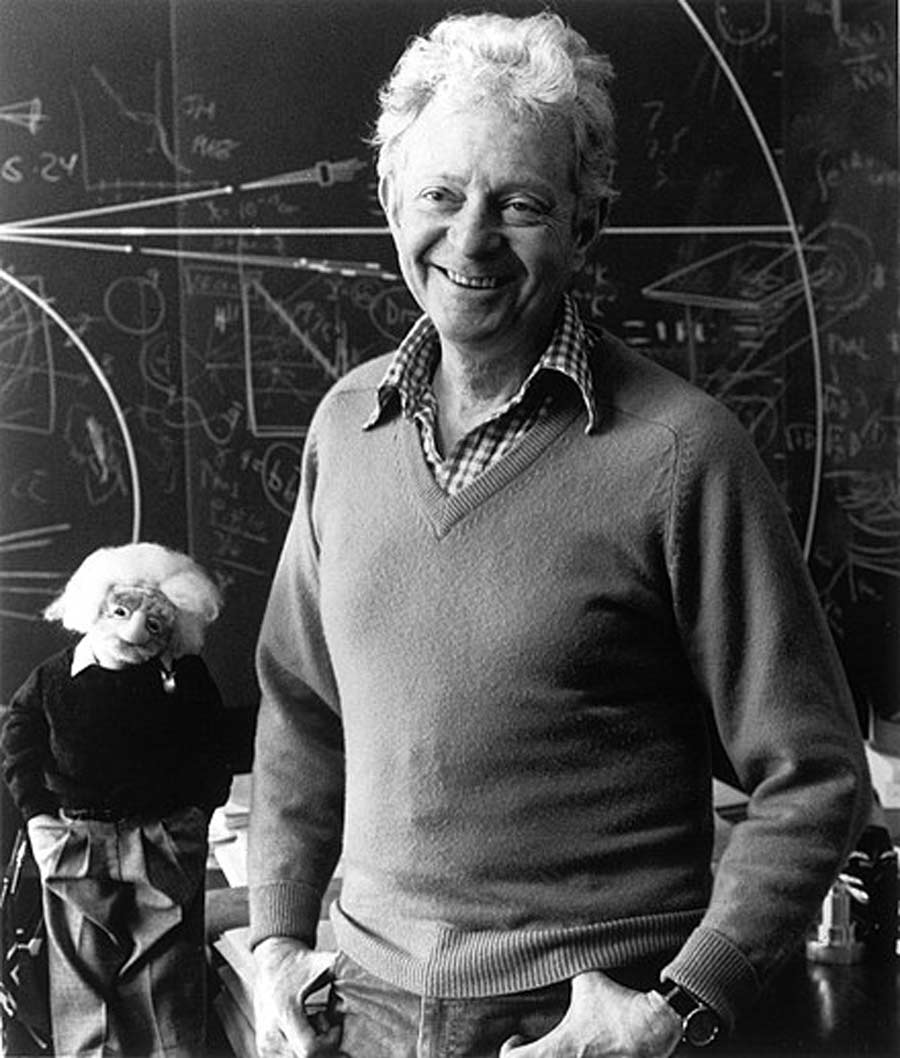The views expressed in our content reflect individual perspectives and do not represent the authoritative views of the Baha'i Faith.
When Max Planck theorized that radiation was emitted in discrete bundles or packets of energy—what we call quanta—new physics and quantum mechanics seemed to refute all that Newton had established.
But it still remained an enigma the fact that light could be accurately described by or perform in accordance with both the quantum theory (as demonstrated by the photoelectric effect) and the wave theory of classical physics (as demonstrated by the periodic wave interaction of two beams of light intersecting on a screen). What a mystery: that light itself could be either a particle or a wave.
That quantum discovery, of course, pointed toward the chain of causality leading us to where we stand today, still trying to find that irreducible building block of creation, the “God particle,” still trying to reconcile various aspects of quantum mechanics with those parts of classical physics that survive, and still trying to reconcile the parts of Einstein’s theory of relativity that just do not seem to jive with quantum mechanics.
But suffice it here to note that the idea of the ether is once again alive and healthy, or at least something very much like it, only more complicated. According to Lederman, the Higgs boson particle leads the way to understanding the absence of nothingness in the universe:
We can summarize the little we know: at least some of the particles that represent the Higgs aether must have zero spin, must be intimately and mysterious connected to mass, and must manifest themselves at temperatures equivalent to the energy of less than 1 TeV. — Lederman and Teresi, The God Particle: If the Universe is the Answer, What is The Question? p. 375.
In other words, it is conceivable that something so refined (literally) that it contains no detectable properties usually associated with matter (i.e., weight or mass), could exist in a so-called vacuum. It is even conceivable that all space is occupied by something because there is no such thing in a material reality as utter nothingness–it would seem to be a clear contradiction in terms.
These conclusions, like so many of the verities and observations made by Baha’u’llah and Abdu’l-Baha in the Baha’i teachings, are thus no longer thought to be arcane or misinformed views about science and scientific law by individuals who could not have understood quantum mechanics and the like because limited by the state of science during their lives or by their own exposure to what was happening in Western science. For example, the following statement about the existence of the ether was made by Abdu’l-Baha around 1905, the year Einstein published his special theory of relativity:
If we were to deny all that is not accessible to the senses, then we would be forced to deny realities which undoubtedly exist. For example, the ether is not sensible, although its reality can be proven. The power of gravity is not sensible, although its existence is likewise undeniable. Whence do we affirm their existence? From their signs. For instance, this light consists in the vibrations of the ether, and from these vibrations we infer its existence. – Some Answered Questions, newly revised edition, p. 219
Later, in a tablet to the famous Swiss scholar Auguste Forel in 1921, Abdu’l-Baha observed the following regarding the inferential logic that must needs prove the existence of God, just as one infers in science the existence of an ether even though we are incapable of detecting its properties:
Thus man cannot grasp the Essence of Divinity, but can, by his reasoning power, by observation, by his intuitive faculties and the revealing power of his faith, believe in God, discover the bounties of His Grace. He becometh certain that though the Divine Essence is unseen of the eye, and the existence of the Deity is intangible, yet conclusive spiritual proofs assert the existence of that unseen Reality. The Divine Essence as it is in itself is however beyond all description. For instance, the nature of ether is unknown, but that it existeth is certain by the effects it produceth, heat, light and electricity being the waves thereof. By these waves the existence of ether is thus proven. — pp. 15-16.
He also noted that if every cause has to be greater than the effect it produces, then there must be a being greater than human beings to have produced the effect of the existence of such beings:
For instance, we observe that the existence of beings is conditioned upon the coming together of various elements and their non-existence upon the decomposition of their constituent elements. For decomposition causeth the dissociation of the various elements. Thus, as we observe the coming together of elements giveth rise to the existence of beings, and knowing that beings are infinite, they being the effect, how can the Cause be finite? — Ibid., p. 16.
In the introduction to the Baha’i Faith, Baha’u’llah and the New Era, written by J. E. Esslemont in 1923, the author observed that nature as an expression of divine reality will always remain beyond the reach of any complete comprehension or description by science:
In each drop of water are hidden oceans of meaning, and in each mote is concealed a whole universe of significances, reaching far beyond the ken of the most learned scientist. The chemist and physicist pursuing their researches into the nature of matter have passed from masses to molecules, from molecules to atoms, from atoms to electrons and ether, but at every step the difficulties of the research increase till the most profound intellect can penetrate no farther, and can but bow in silent awe before the unknown Infinite which remains ever shrouded in inscrutable mystery. — p. 202.
Of course, one might argue that Esslemont was writing before 1972, when scientists assembled the particle accelerator at the Fermilab. But neither this nor any future developments will render Esslemont’s observation any less valid if, indeed, material reality becomes so microcosmic that it descends into refinement infinitely. In other words, the ether may not be a pervasive field of particulates all the same size (a sea of matter one step more refined than the photon), but it may be an array of endlessly refined divisions of materiality beyond what we can as yet perceive or describe with accuracy—just like the Higgs boson.

















Comments
Sign in or create an account
Continue with Googleor